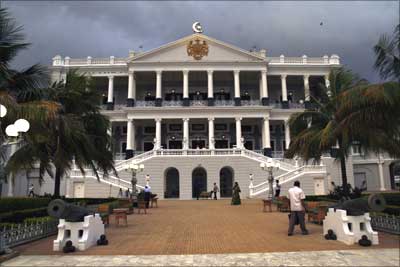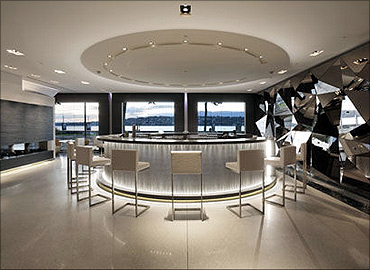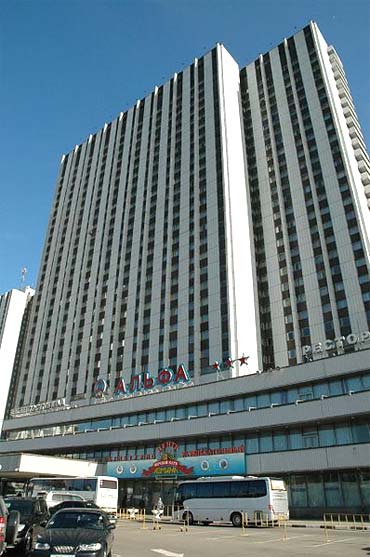Divya Nair
In a two part series analysing four different career sectors, namely hotel management, retail management, aviation and tourism and business management, Ashish Kesharwani, Chief Learning Officer, UEI Global Institute, begins by exploring the career opportunities after completing Hotel Management.
The Hospitality industry covers a wide range of organisations offering food service, accommodation and other customer facing service sector jobs.
Sectors include Hotels / Resorts, Restaurants, Fast food outlets, Discotheques, Bars & Pubs, Banquet, Meeting & Events venues, Gaming, Entertainment and recreation, tourism services, aviation, banking and insurance, etc.
Eligibility
Apart from a minimum qualification of three-year Diploma or a degree after 10+2 from a reputed Institution, having the right attitude is most important to enter this profession.
The individual must have an outgoing and pleasing personality, a capacity for hard work and a liking for interacting with people.
One must also be disciplined, committed and dedicated towards work. With these essentials, an immediate employability is almost guaranteed.
Industry facts
Image: The Falaknuma Palace hotel in HyderabadAccording to reports published by Tourism Ministry, India needs about 150,000 hotel rooms over the next three years, of which 100,000 are in the 3-4 star category.
As per the industry estimates, over 40 international hotels are expected to be operational in the country in the next 3 years; these global chains are now entering across categories (3-5 star hotels).
US based MGM Mirage Hospitality, Amari from Thailand, Fairmont Raffles Hotels, Golden Tulip Hotels, Movenpick Hotels & Resorts, Corinthia Hotels group from Europe are among the chains that are set to come to India.
Then there are Domestic chains like Taj, Oberoi's, Sarovar group, Lemon tree, Citrus, Keys, The Lalit which have huge expansion plans.
Why Hotel Management?
Image: The newly-renovated Oberoi Hotel in MumbaiHotel Management is a glamorous profession with a bright future.
With the growth of hotel industry propelled by foreign and domestic tourism and business travel, the demand for well trained quality personnel has also grown impressively.
To be able to work in the hotel industry, a student must pursue a 3-4 year degree in hotel management.
Post graduation is not a necessity since there are plenty of job offers to choose from at the entry level itself. Those who want to gain experience at an early stage of their career can 'earn while they learn' by way of industry experience through part time jobs such as outdoor catering from year 1 itself.
Most institutes send students for 6 months 'on the job training' exposure in hotels and restaurants as part of curriculum for which they earn monthly stipend.
Hotel Management programs give equal importance to theory and practical; while it is important to focus on theory, it is essential to learn its application through industry exposure during the program.
Scope of career
Image: The Royal Penthouse Suite, Hotel President WilsonPhotographs: Reuters
With increasing globalisation, career opportunities in this field are not only limited within the country but there are chains of hotels which operate internationally providing scope of a career abroad.
The diversity of experience in Hotel management is greater than in any other profession. Hotel industry involves combination of various skills like general management, food/beverage service, food production, housekeeping, front office operation, sales and marketing.
As you graduate from a Hotel Management Institute, one can choose Careers in Hotels, Airlines Catering and cabin management, Club management, Cruise Ship Management, Hospital Administration and Catering, Guest Houses, Institutional Management (supervising canteens in college, schools, in factories, company guest houses etc.), Catering departments of railways, banks, armed forces, shipping companies, Hotel and catering Institutes.
With opportunities so vast, students may also look forward to self employment.
Expected Remuneration
Image: The Crowne Plaza Copenhagen TowersSalaries for entry-level employees in 5 star Hotels are at approximately Rs 15,000 a month. Apart from fixed salaries, front line employees also get a share of gratuity in cash commonly termed as "tips".
Hotel establishments also offer young employees with incentives, perks and lifestyle benefits like free lunches, freebies like complementary stay for the family, picnics and free entries into discotheques.
Those who are passionate about working in Hotels grow vertically from Associate to Executive to Line Manager to Assistant Head of Department to Head of Department
With the burgeoning growth in the Hotel Industry especially in B & C cities in India, one can grow to a position of General Manager in 12 to 14 years in a midsize hotel.
As a General Manager, the perks offered are at par with professionals in any other industry. Depending on the policy, some organizations provide accommodation to the family of the General Manager within the Hotel with all the luxuries of a 5 star hotel.
With 3-4 years of work experience, a lot of chefs with expertise in Indian cuisine get job offers from UK, Canada, Australia and the Middle East.
There are plenty of opportunities available on international cruise liners in F&B service as well as food production. Cruise ships offer employees the opportunity to travel the world whilst saving money as well.
Scope in other service Industries
Image: Izmailovo Hotel Gamma Delta, MoscowHospitality is a blend of attitude and professional skills.
Ideally one should possess traits such as warmth, friendliness and empathy, good listening skills and confidence.
Hotel Management courses play a very important role in developing the personality of students which is vital for positive customer interactions. The course also teaches several soft skills that make a student fit for the hospitality industry.
The above has made institutes realise that just information in the core departments is not enough to sustain growth in service industry. Including business subjects like marketing, human resources, financial accounting, management accounting, strategic management and business law is equally essential. Realising this, institutes have begun changing by teaching students to be multifunctional managers where the learning process begins with making decisions and then adding the necessary functional expertise.
Apart from business skills, the inclusion of management subjects in the curriculum adds to the grooming, personality, and attitude of an individual.
These features get them job roles such as business development managers, relationship managers, customer service managers and direct sales executives in multinational organisations in sectors like Telecom, IT, BPO, Retail, Healthcare, Banking and Finance etc.
Today, there are plenty of examples of individuals who after completing their hotel management degree have risen to levels of General Managers or Vice Presidents in different industries.
Thus, pursuing a course in hotel management today has a rewarding career not only in hotel industry but also in service sector at large.







Comment
article